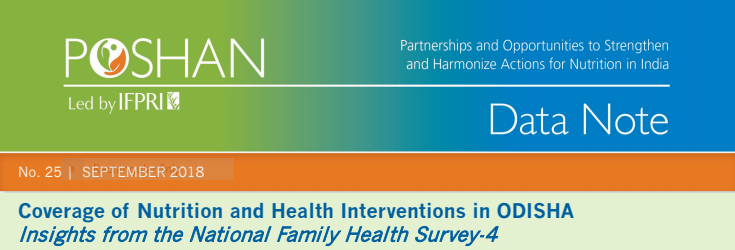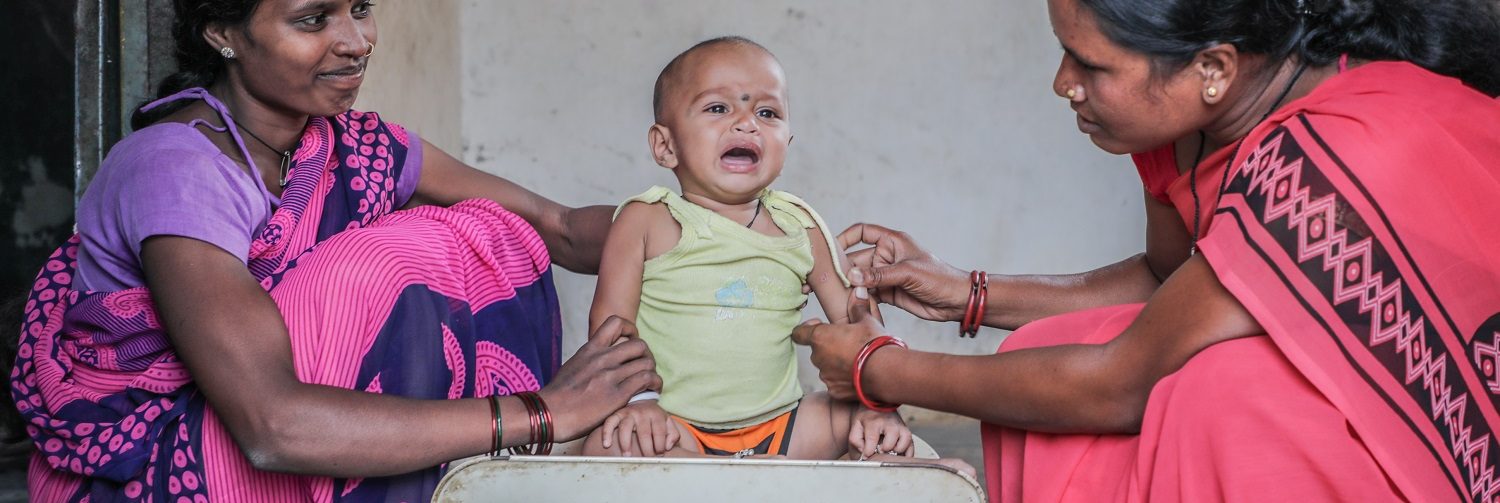
Click here to download PDF
It is crucial to understand the coverage of nutrition and health interventions to gain further insights into their effectiveness and impact. We present this Data Note that describes the coverage of a set of key nutrition and health interventions in the state of Odisha, an eastern Indian state with a long coastline, middle mountainous regions, central plateaus and major flood plains. The findings here are based on data from the National Family Health Survey 2015-2016.
India’s policy framework for health and nutrition is robust and includes most evidence-based nutrition and health interventions. Two large-scale national program platforms – the Integrated Child Development Services and the National Health Mission together provide the public sector delivery platforms with the mandate to deliver these interventions across the country. India’s efforts at scaling up nutrition interventions are now also supported by the National Nutrition Mission (or POSHAN Abhiyaan).
Findings of this Data Note reveal that in Odisha many interventions, like iodized salt, antenatal care (ANC) visits, mother and child protection (MCP) card, iron and folic acid (IFA) provision, weighing, food supplementation, and tetanus toxoid injection have achieved high coverage (≥75%) before and during pregnancy. However, the coverage of postnatal care is higher for mothers than for babies. Weight monitoring during childhood often does not involve counselling on child growth. The state should focus its efforts on increasing the coverage of these interventions. For deeper insights into the coverage of key nutrition and health interventions in the state of Odisha, with district-wise status, please download this Data Note on "Coverage of Nutrition and Health Interventions in ODISHA: Insights from the National Family Health Survey-4".


